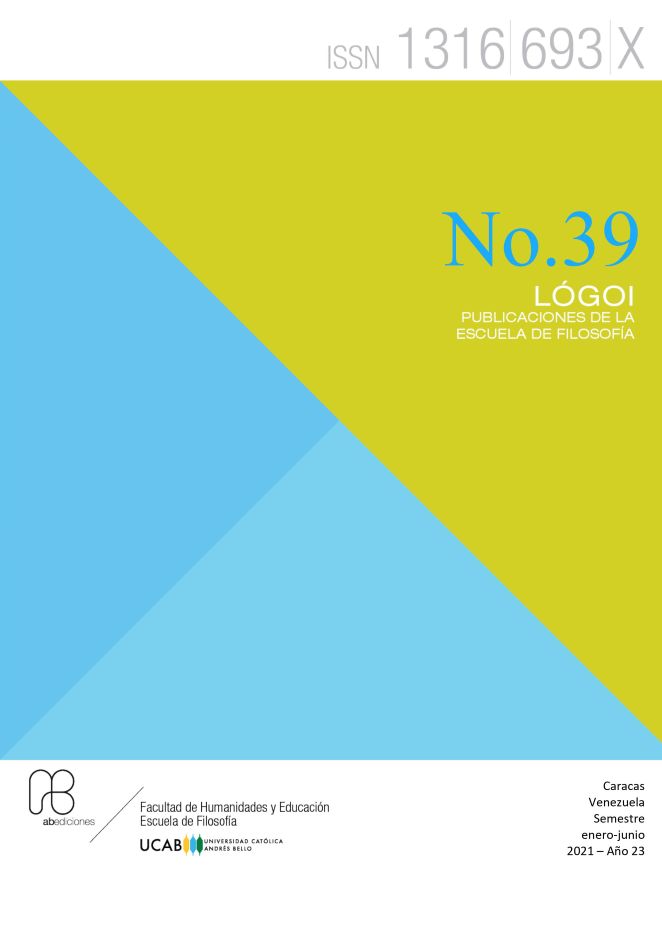Pensándolo bien, las intenciones irreflexivas al estilo Libet pueden ser compatibles con el libre albedrío
DOI:
https://doi.org/10.62876/lr.vi039.5025Palabras clave:
reflexion, intención, neurociencia, filosofía de la mente, libre albedríoResumen
Algunos han argumentado que nuestro sentido de libre albedrío es una ilusión. Y algunos basan este escepticismo en lo que interpretan como el momento en que nos volvemos conscientes de nuestras intenciones. La evidencia sugiere que las intenciones no reflexivas se forman antes de que seamos conscientes de ellas. Y eso se supone que desafía nuestro sentido del libre albedrío. Esta inferencia puede parecer intuitiva al principio. Sin embargo, este argumento parece implicar una visión mágica del libre albedrío. En la medida en que este no requiere magia, las intenciones no reflexivas no necesariamente socavan nuestro sentido de libre albedrío
Some have argued that our sense of free will is an illusion. And some base this free will skepticism on claims about when we become consciously aware of our intentions. Evidence suggests that unreflective intentions form before we are conscious of them. And that is supposed to challenge our sense of free will. This inference from unreflective intention to free will skepticism may seem intuitive at first. However, upon reflection, this argument seems to entail a magical view of free will. So, insofar as free will does not require magic, unreflective intentions do not necessarily undermine our sense of free will.
Descargas
Citas
Barger, Bill. 1976. “Sartre on ‘Original Choice’.” Philosophy Research Archives, 2: 1–19. https://doi.org/10.5840/pra197621.
Byrd, Nick. 2020. “All Measures Are Not Created Equal: Reflection Test, Think Aloud, and Process Dissociation Protocols.” Revisions Requested. Thinking & Reasoning.
Caruso, Gregg. 2013. Free Will and Consciousness: A DeterministAccount of the Illusion of Free Will. USA: Lexington Books.
Church, Jennifer. 1987. “Reasonable Irrationality.” Mind, 96 (383): 354–66. https://www.jstor.org/stable/2254312.
Createaccount. 2011. English: Benjamin Libet’s Experiment in Which He Asked Each Subject to Choose a Random Moment to Flick Their Wrist While He Measured the Associated Activity in Their Brain (in Particular, the Build-up of Electrical Signal Called the Readiness Potential). Own work. https://commons.wikimedia.org/wiki/File:B.Libet.experiment.gif.
Dennett, Daniel C. 2015. Elbow Room: The Varieties of Free Will Worth Wanting. New edition. Cambridge: Bradford Books.
Fischborn, Marcelo. 2016. “Libet-Style Experiments, Neuroscience, and Libertarian Free Will.” Philosophical Psychology. http://www.tandfonline.com/eprint/KBwhTKyDUHeg3MVphVdG/full.
Gollwitzer, Peter M. 1999. “Implementation Intentions: Strong Effects of Simple Plans.” American Psychologist, 54 (7): 493–503. https://doi.org/10.1037/0003-066X.54.7.493.
Koenig-Robert, Roger, and Joel Pearson. 2019. “Decoding the Contents and Strength of Imagery before Volitional Engagement.” Scientific Reports, 9 (1): 3504. https://doi.org/10.1038/s41598-019-39813-y.
Levy, Neil, and Tim Bayne. 2004. “Doing without Deliberation: Automatism, Automaticity, and Moral Accountability.” International Review of Psychiatry, 16 (3): 209–15. https://doi.org/10.1080/09540260400003909.
Libet, Benjamin. 1999. “Do We Have Free Will?” Journal of Consciousness Studies, 6 (8–9): 47–57.
Libet, Benjamin. 2001. “Consciousness, Free Action and the Brain: Commentary on John Searle’s Article (with Reply From Searle).” Journal of Consciousness Studies, 8 (8): 59–65.
Libet, Benjamin, Curtis Gleason, Elwood Wright, and Dennis Pearl. 1983. “Time of Conscious Intention to Act in Relation to Onset of Cerebral Activity (Readiness-Potential) The Unconscious Initiation of a Freely Voluntary Act.” Brain, 106 (3): 623–42.
Mele, Alfred R. 2003. Motivation and Agency. Oxford: Oxford University Press.
Mele, Alfred R. 2009. Effective Intentions: The Power of Conscious Will. USA: Oxford University Press.
Mele, Alfred R. 2013. “Free Will and Neuroscience: Revisiting Libet’s Studies.” In Is Science Compatible with Free Will?, edited by Suarez A., Adams P., 195-207. New York: Springer.
Nahmias, Eddy, D Justin Coates, and Trevor Kvaran. 2007. “Free Will, Moral Responsibility, and Mechanism: Experiments on Folk Intuitions.” Midwest Studies in Philosophy, 31 (1): 214–42.
Pacherie, Elisabeth. 2015. “Conscious Intentions: The Social Creation Myth” In Open MIND, edited by Thomas Metzinger and Jennifer M. Windt. Frankfurt am Main: MIND Group. https://doi.org/10.15502/9783958570122.
Saigle, Victoria, Veljko Dubljević, and Eric Racine. 2018. “The Impact of a Landmark Neuroscience Study on Free Will: A Qualitative Analysis of Articles Using Libet and Colleagues’ Methods.” AJOB Neuroscience, 9 (1): 29–41. https://doi.org/10.1080/21507740.2018.1425756.
Sanchez, Santiago. 2011. “An Argument for a Reasons-Based Doxastic Voluntarism.”
Setiya, Kieran. 2018. “Intention.” In The Stanford Encyclopedia of Philosophy, edited by Edward N.Zalta, Fall 2018. Metaphysics Research Lab, Stanford University. https://plato.stanford.edu/archives/fall2018/entries/intention/.
Shea, Nicholas, and Chris D. Frith. 2016. “Dual-Process Theories and Consciousness: The Case for ‘Type Zero’ Cognition.” Neuroscience of Consciousness 2016 (1).https://doi.org/10.1093/nc/niw005.
Wegner, Daniel M. 2002. The Illusion of Conscious Will. Cambridge, MA: MIT Press.
Publicado
Cómo citar
Número
Sección
Licencia
Derechos de autor 2022 Nick Byrd

Esta obra está bajo una licencia internacional Creative Commons Atribución-NoComercial-CompartirIgual 4.0.






.png)












